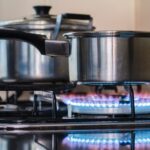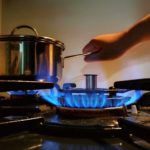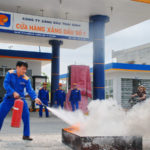LPG or liquefied petroleum gas is a heavier-than-air gas, which means that in the event of a leak, it will sink to the floor, creating a highly dangerous mixture of air just above floor level. This mixture, when exposed to a spark or heat source, can lead to a violent explosion. Even if there isn’t enough gas to cause an explosion, it still poses a significant risk to human life.
Leaking gas displaces oxygen, and in areas with gas contamination, there may not be enough oxygen to support respiration, leading to asphyxiation or, in worse cases, gas poisoning.
1. Turn Off the Gas Valve After Cooking
Failing to turn off the valve after cooking can leave residual gas in the pipes. While this may not seem like an issue under normal circumstances, a loose connection between the pipe and the gas cylinder, or a cracked pipe, can cause a leak. If this happens and the gas comes into contact with an electrical spark, it could result in a dangerous explosion.
Remembering to turn off the gas valve not only ensures safety but also saves you money on your gas bill. Make it a habit to turn off the valve after each use.
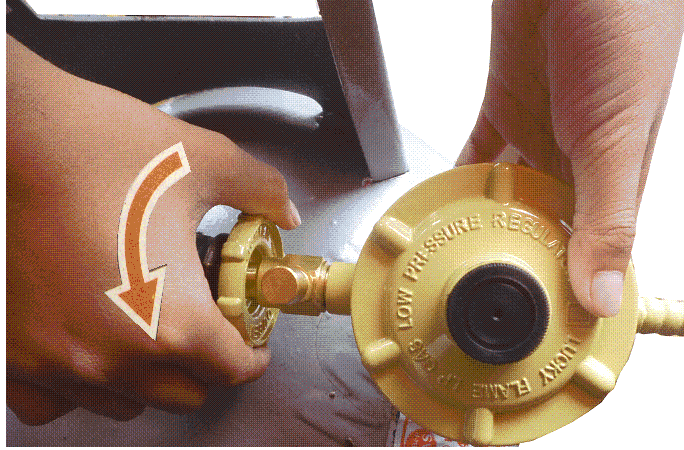
Illustrative image.
2. Keep a Safe Distance from Power Outlets and Heat Sources
In an effort to maximize space, it’s common for Vietnamese households to cluster appliances together, often plugging multiple devices into a single power outlet. This might include a gas stove, rice cooker, oven, microwave, and electric kettle all in close proximity.
However, this practice can be extremely dangerous. Overloading a power outlet or having a gas stove in close contact with a potential spark source increases the risk of a major explosion.
To ensure the safety of your family and those around you, it’s crucial to arrange appliances thoughtfully and maintain a safe distance between heat sources and power outlets.
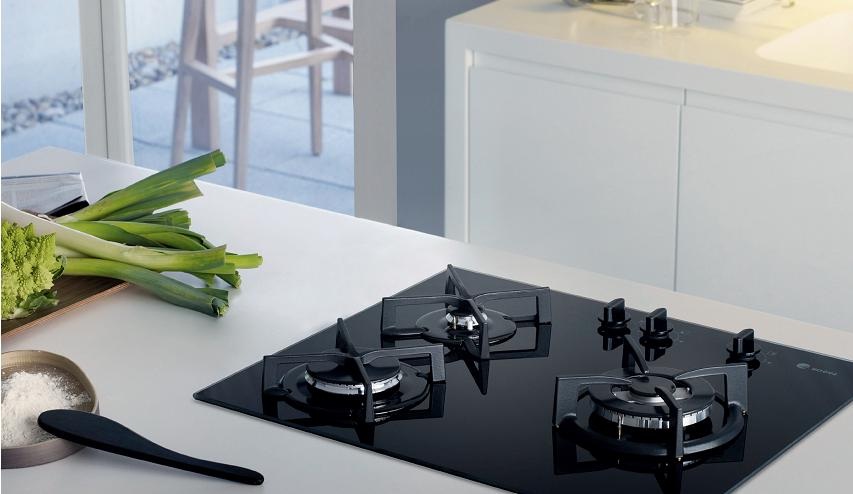
Gas stoves should be installed in a safe location, away from power outlets and switches.
3. Purchase Gas Stoves and Cylinders from Reputable Sources
It’s important to purchase your gas stove and cylinders from authorized dealers or reputable brands like Paloma, Sunhouse, Electrolux, Teka, and Malloca. These brands offer warranty services and provide peace of mind when it comes to safety. Don’t compromise your safety by opting for cheaper, unbranded options.
Additionally, when replacing your gas cylinder, inspect it thoroughly for any signs of damage, rust, or deformation to ensure your safety.
4. Regular Maintenance and Cleaning
Grease and food residue can build up over time, creating a fire hazard. By neglecting regular maintenance, you lose control over the condition of your stove, and in the event of an explosion, it may be challenging to determine the cause. Make it a habit to clean your stove after each use or at least once a week. For added peace of mind, consider having your stove serviced every 2-3 months.
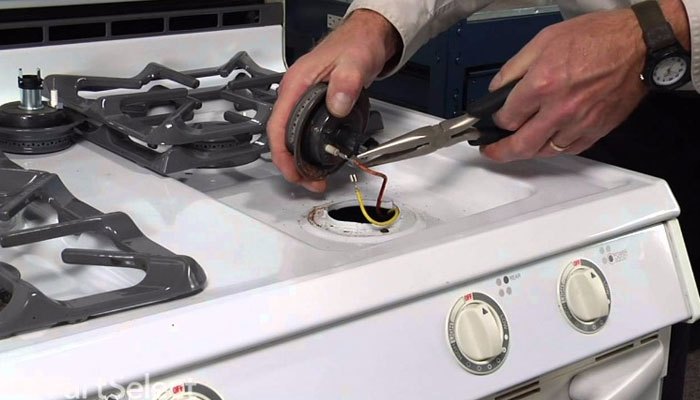
Illustrative image.
5. Do Not Use Lighters or Mobile Phones to Check for Gas Leaks
If you suspect a gas leak, the first thing you should do is turn off the gas valve, open all windows and doors to ventilate the area, and reduce the concentration of combustible gas in the kitchen.
Using a lighter, fan, or even your mobile phone to check for a leak can be dangerous. These devices can produce sparks, which, when combined with gas, can cause an explosion. Avoid putting yourself at risk by refraining from using these items for leak detection.
6. Keep Children Away from the Gas Stove
Children are naturally curious and tend to explore their surroundings without fully understanding the potential dangers. Allowing them to use the gas stove unsupervised can be hazardous. If your child is not yet mature enough to understand the safety precautions, keep a close eye on them and provide guidance when necessary. It’s always better to be safe than sorry.
7. Replace Old Stoves and Accessories
Gas explosions are often caused by gas leaks resulting from damaged cylinders, faulty valves, or rodent-chewed pipes. The gas hose, in particular, is a sensitive component that is prone to leaks, and it is recommended to replace it every five years. If your gas stove is old and rusty, consider replacing it with a new one to ensure a safer and more convenient cooking experience.
According to Nhịp Sống Việt
How to Fix a Gas Stove That Is Puffing Out Dangerous Flames: A Quick and Safe Guide
Stoves are an integral part of every Vietnamese household, but they can also be a source of danger. It is important to be aware of the risks and take the necessary precautions to ensure safety. Gas stove explosions are a common issue, and knowing how to address them promptly and effectively is crucial. Learn how to tackle gas stove explosions and keep your family safe with these easy-to-follow tips.
The Ultimate Guide: 10 Timeless Tips That Still Work Today
Are you stumped by those stubbornly stuck-together glass cups? Or perhaps you’re perplexed by a leaky gas pipe. Well, worry not! Our website is here to save the day with an extensive repository of ingenious life hacks that will make you exclaim, “Why didn’t I think of that?” From household conundrums to culinary quandaries, we’ve got you covered with simple yet effective solutions that will make your life a whole lot easier. So, get ready to unleash your inner MacGyver and tackle life’s little challenges with style!
Is Hoarding Gasoline at Home a Good Idea Amid Record-High Prices?
“As fuel prices soared to unprecedented heights, many people resorted to stockpiling gasoline and diesel at home, unaware of the hidden dangers that lay ahead. Uncover the potential risks and consequences of this practice and learn how to navigate through this challenging time with our insightful article. Stay informed, stay safe.”

























